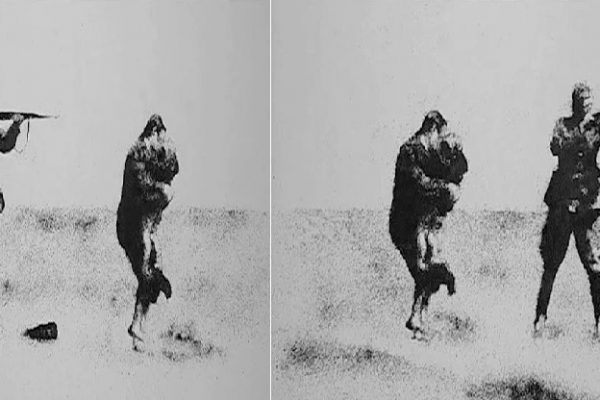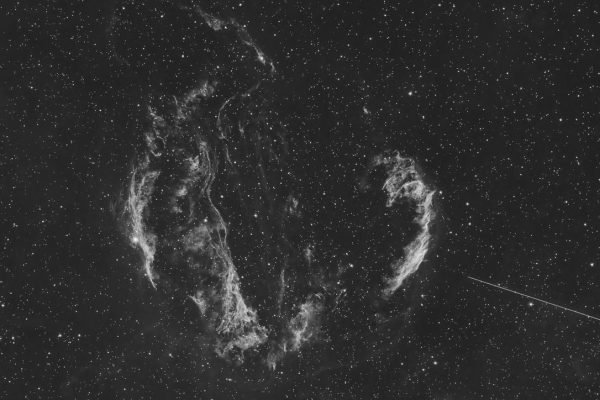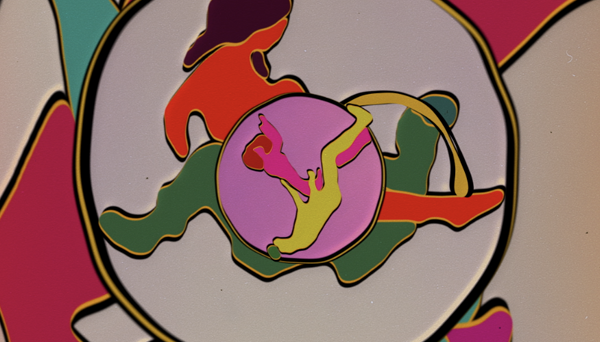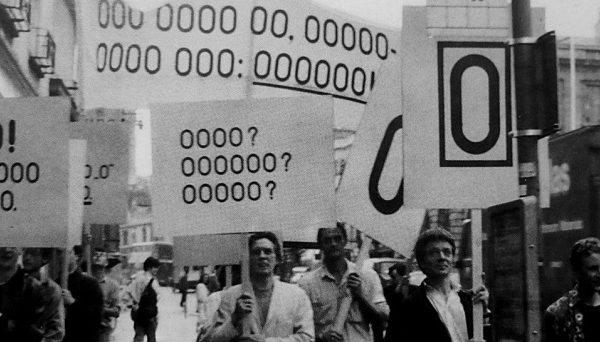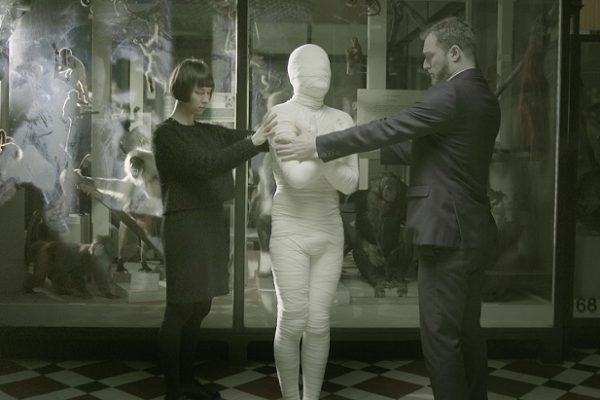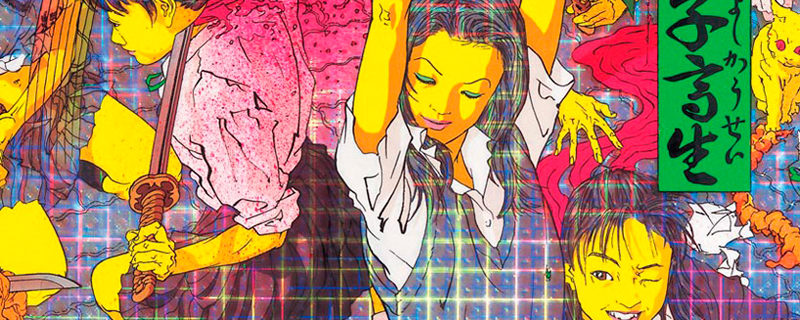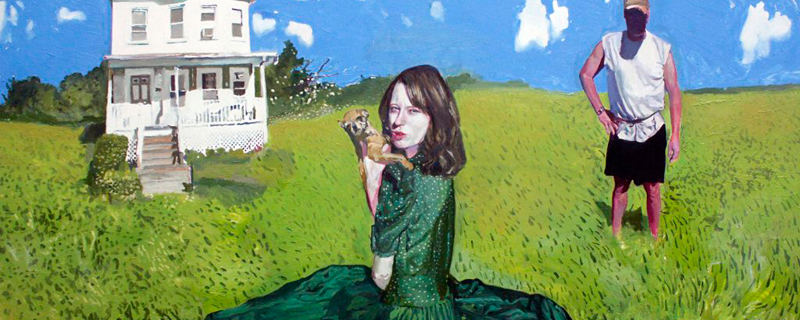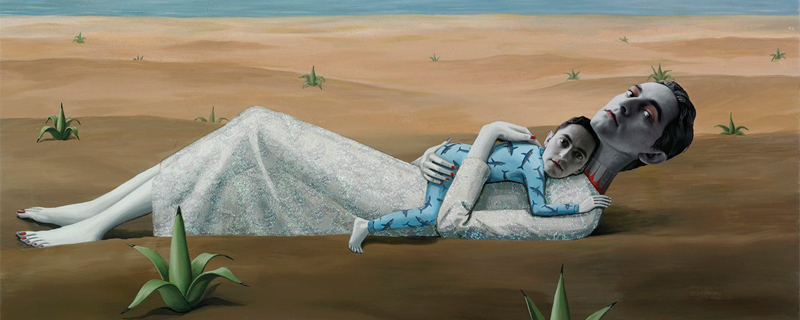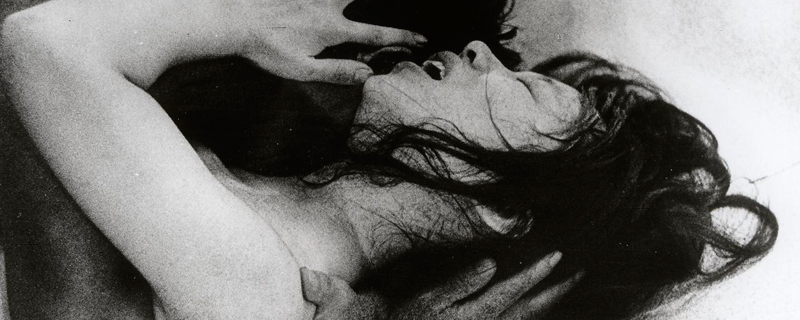En una entrevista, el artista Makoto Aida justifica la obsesión japonesa con las adolescentes con lo que él llama feminización del país, que quedó huérfano de padre tras abolirse el ejército al término de la Segunda Guerra Mundial. Aida, en su obra, parodia las filias sexuales de sus coterráneos a la par que arremete contra el masoquismo vernáculo arraigado en antiguos códigos de honor, la fiebre empresarial y las fantasmales vías de evasión. Desde los […]
Autor: Le Bastart
Japanese dolls: toys and idols
In an interview, the artist Makoto Aida justifies Japanese obsession with teenagers by what he calls feminization of the country, who lost his father after abolition of the army at the end of World War II. Aida’s work caricatures sexual philias of his countrymen, attacks the vernacular masochism rooted in ancient codes of honor, entrepreneurial fever and dreamy ways to escape. Since the floating time of ukiyo-e to the weightless walks between manga girls of […]
Xevi Solà, narrador de delirios crónicos
Los crónicos -la mayoría de nosotros- son máquinas con fallos sin reparación posible, fallos de origen o que han ido formándose a lo largo de años dándose de cabeza contra obstáculos impenetrables… (Ken Kesey, Alguien voló sobre el nido del cuco) La geografía americana nutre un imaginario suburbano confrontado entre las piscinas prístinas de las acristaladas casas californianas y los barreños hinchables del patio trasero de destartalados caserones sureños, entre las brazadas de esos […]
Xevi Solà and his delirium world
Chronics -most of us- are machines with flaws inside that can’t be repaired, flaws born in, or flaws beat in over so many years of the guy running head-on into solid things… (Ken Kesey, One flew over the cuckoo’s nest) American geography nurtures a suburban imaginary confronted between the pristine pools of glass Californian houses and backyard inflatable tubs of southern big rambling shed, among armfuls of those young bodies chiseled by the libido […]
Gino Rubert, narciso jugando a los disfraces
La vida es una partida de ajedrez perdida de antemano; lo importante es participar. Los pintores medievales representaban a la muerte jugando al ajedrez con sus víctimas, una época en que nuestra naturaleza provisional, efímera, era más aceptada que ahora. Danzas macabras, vanitas… eran recordatorios no exentos de sorna soterrada. Un humor negro que en cierto modo se perdió con el patetismo de los memento mori barrocos. Gino Rubert recupera la ironía asociada a nuestra […]
Gino Rubert, narciso playing dress up
Life is a game of chess lost beforehand; the important thing is to participate. Medieval painters represented death playing chess with their victims, a time when our provisional, ephemeral nature was more accepted than now. macabre dances, vanitas… were reminders not exempt from underground sarcasm. A black humor that somehow was lost with the pathos of the Baroque memento mori. Gino Rubert recovers the irony associated with our existential decay, adopting a festive-pop tone debtor […]
Lechos movedizos, sensuales y mortíferos
Allí, en la arena suave, a pocos metros de nuestros mayores, nos quedábamos tendidos la mañana entera, en un petrificado paroxismo, y aprovechábamos cada bendita grieta abierta en el espacio y el tiempo; su mano, medio oculta en la arena, se deslizaba hacia mí, sus bellos dedos morenos se acercaban cada vez más, como en sueños. Humbert Humbert (Nabokov) evoca así su despertar sexual y la nostalgia de una pureza tan escurridiza como los granos […]
Quicksand, sensual and deadly beds
There, on the soft sand, a few feet away from our elders, we would sprawl all morning, in a petrified paroxysm of desire, and take advantage of every blessed quirk in space and time to touch each other: her hand, half-hidden in the sand, would creep toward me, its slender brown fingers sleepwalking nearer and nearer. Humbert Humbert (Nabokov) evokes his sexual awakening and nostalgia for such purity, elusive as the grains of sand that shelters […]


